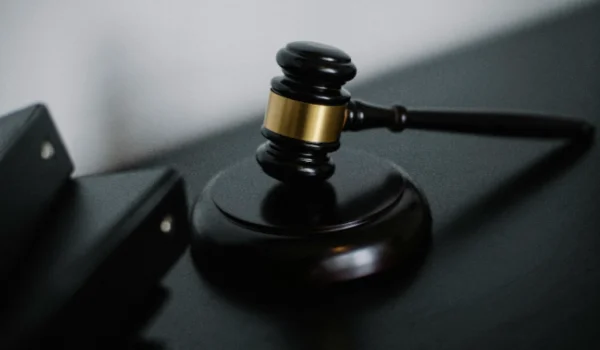In the pursuit of justice, the bail system is designed to ensure that individuals accused of a crime can secure their temporary freedom while awaiting trial. Yet, beneath this well-intentioned framework lies a deeply contentious debate over fairness and equality. For many, the current bail practices are anything but fair—a lingering relic of a system that favors wealth over justice.
The Wealth Divide

At its core, bail is meant to guarantee that defendants return to court without having to sit behind bars. However, this comes at a price. Those with means can easily afford bail, sidestepping the horrors of pre-trial incarceration. For the economically disadvantaged, it’s a radically different story. Unable to post bail, these individuals remain behind bars, regardless of their guilt or innocence. This financial chasm highlights a glaring flaw: the scales of justice are grotesquely tilted in favor of wealth.
The disparity between those who can afford bail and those who cannot cannot be overstated. It touches various strata of society, eroding public trust in the justice system. As people witness firsthand or hear about the different outcomes based purely on financial standing, their confidence in a system that purports to deliver fair and impartial justice diminishes dramatically. Consequently, many begin questioning the legitimacy of a justice system that equates freedom with wealth, breeding feelings of resentment and disenfranchisement.
The Cost of Injustice
While some argue that holding individuals in detention is necessary for public safety, the financial cost is staggering. Taxpayers foot the bill for pre-trial detainees, many of whom pose minimal flight risk and no significant danger. Reforming the system could save money and ensure a fairer process, yet change remains elusive.
Notably, resources like a bail bondsman Florida can bridge the gap for those in immediate need of assistance, though it’s clear that more systemic solutions are needed to address the broader inequities present.
Moreover, the human cost, often less talked about, is significant. The emotional and psychological distress of pre-trial detention takes a toll, as detainees face uncertain futures and are isolated from their support networks. These experiences can leave lasting scars, impacting their ability to reintegrate into their communities even after their innocence is proven or they have served minimal sentences. The psychological battle of facing a future determined by one’s financial resources is a reality that many cannot easily overcome.
A Call for Accountability
If the bail system is to be more just, transparency and accountability must be core tenets. Lawmakers and stakeholders must prioritize reforms that emphasize equality. Regular audits, public forums, and data-driven approaches could propel the system toward a more equitable model. Abandoning cash bail won’t solve all issues, but it’s a significant step toward a fairer system that values justice over monetary affluence.
Societal Consequences
Beyond the individual impact, the ramifications of an inequitable bail system ripple through society. Statistics reveal that those who are unable to post bail face worse outcomes in their cases. Locked away, they lose jobs, homes, and their right to participate in their defense. This becomes a cycle of entrapment, exacerbating poverty and leading to higher recidivism rates. Thus, a system meant to protect ends up punishing the poor and entrenching systemic inequities further.
The societal toll of maintaining an unfair bail system is immense. The cycle of re-offense not only affects the individual in question; it reverberates through their family and community. Families are destabilized as breadwinners are incarcerated, children grow up with one or both parents behind bars, and communities must confront the reality of broken homes. Over time, the cumulative effect can be tangibly observed in strained social services, weaker community bonds, and perpetuation of a cycle that should have been broken long ago.
Pushing for Reforms
States like New Jersey and New York have implemented reforms aimed at reducing reliance on cash bail. Risk assessments and supervised release programs are growing in popularity, seeking to balance public safety with justice. But these solutions aren’t without contention. Critics challenge the implicit biases in risk assessment tools, arguing they perpetuate racial disparities rather than curtail them.
Challenges notwithstanding, the push for reform continues, buoyed by a rising wave of activism and awareness. Advocacy groups, community leaders, and individual citizens are coming together to demand a fairer system. They seek not just reform in existing approaches but also new and creative alternatives that prioritize the presumption of innocence and community well-being over financial considerations. Perhaps through relentless collective effort, genuine transformation in the bail system might someday be realized.
A New Dawn
Change looms on the horizon for those trapped under the weight of the current bail system. As discussions on restructuring intensify, hope for a more equitable justice system mounts. Dismantling a flawed framework is never easy, but the price of inaction is steep. America’s bail practices need a transformation that ensures justice for all rather than for a select few. And it’s a call too significant to ignore.

 Oliver Johnson is LawScroller’s Senior Legal Correspondent specializing in civil litigation, class actions, and consumer lawsuit coverage. He breaks down complex settlements and court decisions into clear, practical guidance for readers.
Oliver Johnson is LawScroller’s Senior Legal Correspondent specializing in civil litigation, class actions, and consumer lawsuit coverage. He breaks down complex settlements and court decisions into clear, practical guidance for readers.